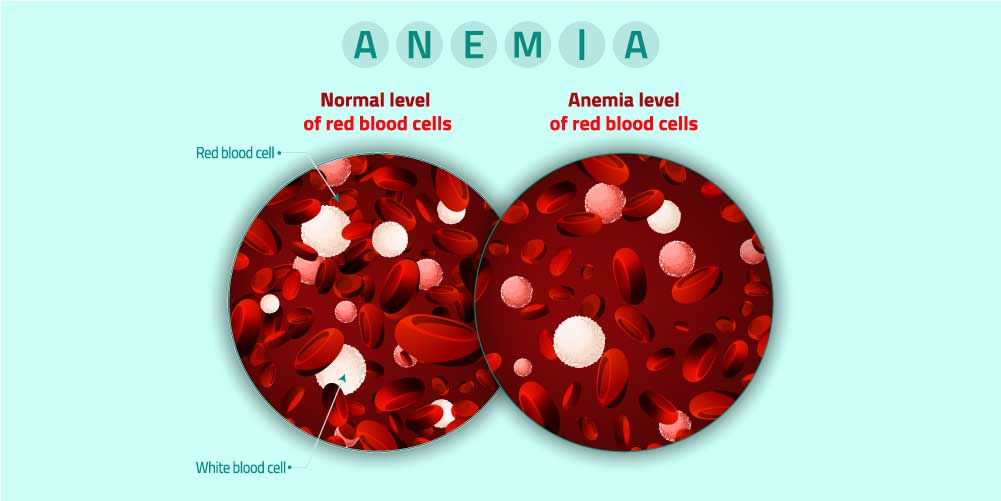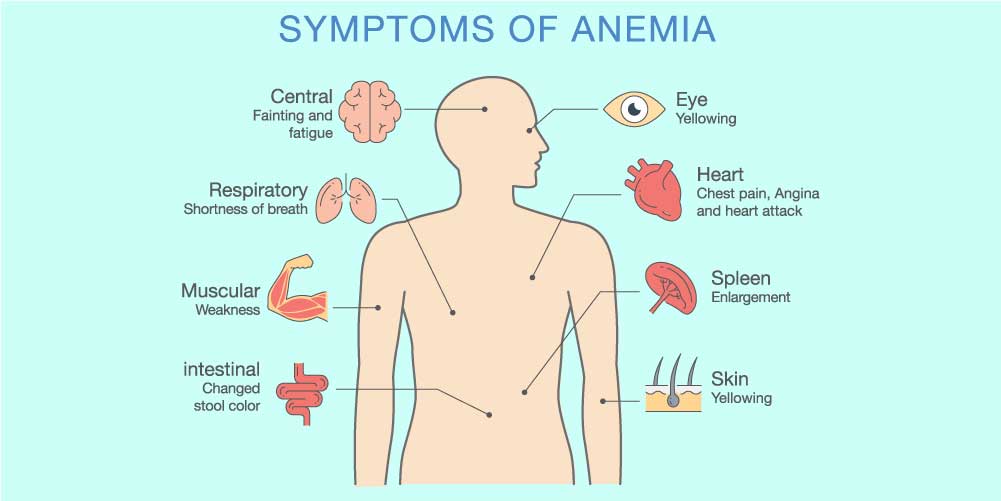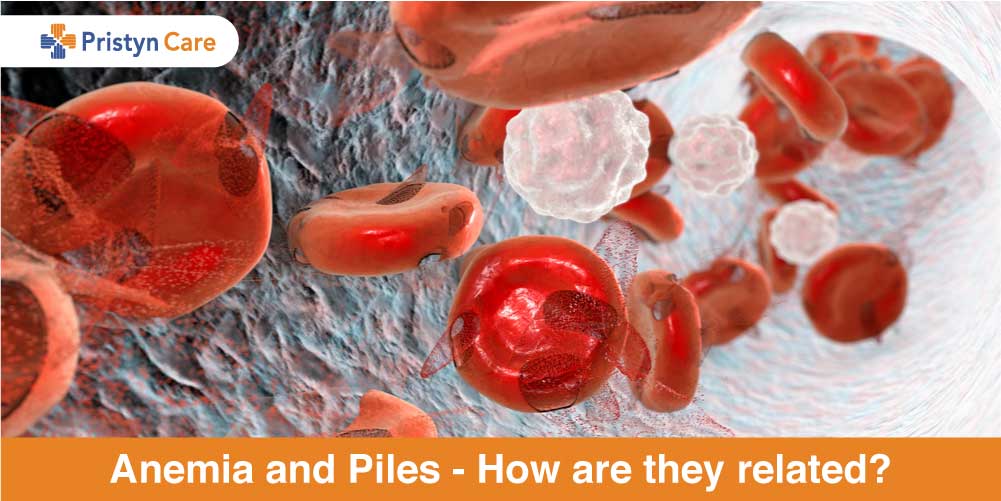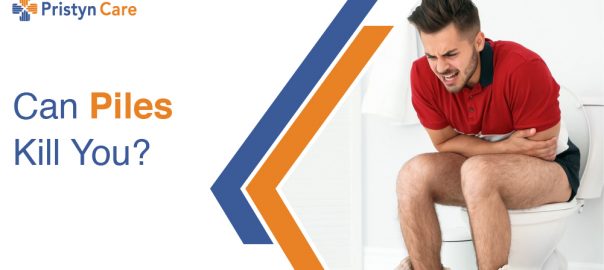![]() Views: 17,380
Views: 17,380
Anemia and Piles – How are they related?
Anemia is a condition where your body does not have enough iron to make red blood cells. These red blood cells make hemoglobin that carries oxygen to the tissues in different parts of the body. Iron deficiency is the primary cause of anemia.
Dedicated Support at Every Step!
Our Doctors are available 24 hours a day, 7 days a week to help you!
Anemia is a condition where your body does not have enough iron to make red blood cells. These red blood cells make hemoglobin that carries oxygen to the tissues in different parts of the body. Iron deficiency is the primary cause of anemia.
Whereas piles is an anorectal disorder where the blood vessels swell and inflame in or around the anal region. Now you must be thinking how anemia and piles are related? In this blog, we will discuss the causes of anemia and the connection between hemorrhoids and anemia.
Nutritional deficiency, majorly iron, folate, vitamin B12 is one of the major causes of anemia. Other nutrients such as some of the other vitamins, copper, and zinc also contribute to the condition.

Normal Iron levels are 40-150 ug/dL (female) and 50-160 ug/dL (male). Normal values may vary for different diagnostic centers.
Table of Contents News Update:Anemia is possibly the single biggest national nutritional challenge in India. Around 53% of women in the age group of 15-49 years and 58.6% of children in the age group of 6-59 months are anemic as per the latest National Family Health Survey. In comparison, 22.7% of men in the age group of 15-49 years are anemic, which isn’t a small number either. To counter anemia and other nutrition deficiency-related ailments, the Ministry of Health and Family Welfare with its visionary National Nutrition Strategy is working relentlessly to achieve Kuposhan Mukt Bharat by 2022. |
Normal symptoms of Anemia

No Cost EMI, Hassle-free Insurance Approval
What Causes Anemia?
The cause of anemia is usually a deficiency of iron in the body and the low level of iron can be due to:
- Lack of iron in diet usually in children or pregnant women
- Heavy menstrual bleeding
- Bleeding inside the body which can be due to ulcers, cancer or through the gastrointestinal tract.
- Your body is unable to absorb iron well. This happens when a part of your stomach or small intestine is removed.
One of the most common causes of bleeding in the gastrointestinal tract can be piles. This can be inside the rectum or even outside it. Let us understand the anatomy of anemia and piles.
Hemorrhoids and Anemia
Health conditions such as ulcers, polyps, or piles can each cause iron deficiency or anemia. The instance of piles causing anemia to a severe state is not common, but it does happen. Rectal bleeding due to piles can lead to large amounts of blood loss from the body.
If you are concerned you have iron deficiency anemia related to piles, contact a doctor immediately. Iron deficiency anemia can only be diagnosed by a blood test or a series of blood tests. Your doctor will be looking at the complete blood count, or CBC, to see the levels of hemoglobin in the body. They may also order secondary tests such as a colonoscopy to rule out other possible causes of anemia.
Symptoms of anemia during piles
- You may feel tired and weak due to loss of blood. It becomes difficult to perform daily activities.
- There is blood in the stool which may denote that you are losing blood from your lower gastrointestinal tract.
- There may be stomach cramps or severe abdominal pain.
- Pain in the anal or rectum region while passing stool.
- Along with pain and itching in the anal region, you may bleed easily even if you strain.
Other causes of bleeding in the gastrointestinal tract can be cancer of rectum or colon, fissure, diarrhea, inflammatory bowel disease (IBD) or intestinal infection.
How to Treat Piles & Anemia at Home?
It is important to start treatment immediately for iron deficiency anemia because prolonged anemia can lead to serious health complications. The first step is to increase your iron intake. Many foods are rich in iron, such as
- Eggs
- Beans
- Nuts and seeds
- Red meats, fish, or tofu
- Brown rice
- Raisins, prunes, and apricots
Your doctor may also prescribe an iron supplement to boost the iron content in the body. It is equally as important to treat the cause of the anemia – hemorrhoid. There are many ways to treat hemorrhoids. Home remedies for piles can treat the initial stage piles. Some doctors may prescribe over-the-counter ointments and medicine. If nothing works, surgery is the last resort.
Home Remedies for Piles include:
- Increase your fiber intake. Fiber helps soften stool, so it can be passed easily. High fiber foods include fruits and vegetables, and whole grains. Another way to get more fiber is through fiber supplements. These can be helpful for those who cannot get enough fiber through their diet, or those who continue to suffer from chronic constipation.
- Stay hydrated. Drinking plenty of water can also help keep your stool soft.
- Stay active. Regular exercise keeps your body moving. This can help your digestive system stay regular.
- Don’t hold the call to urinate or defecate. Going as soon as you feel the urge can prevent the stool from becoming harder.
- Sitz bath. Soaking in a sitz bath can help piles heal faster.
If no treatment works for piles and bleeding continues, go for piles laser surgery. In this procedure, the laser is introduced (not sure if this is a correct word here) inside the rectum and energy is used to destroy piles with great precision. The blood supply gets cut off, they shrink and the surgeon seals them with the laser. This technique is very helpful in dealing with piles that have not been cured for a long time.
Case study:
A case of severe iron deficiency anemia due to bleeding caused by internal hemorrhoid
A 44-year old man noticed blood while defecating. It was a normal thing for him so he did not search for any medical treatment. However, there was dyspnea on exertion and the swelling of the lower limbs. Finally, he had difficulty walking so he visited the doctor. He was diagnosed with severe anemia and was admitted to the hospital.
Reports showed a remarkable decrease in serum iron and ferritin, without any abnormality by endoscopic examination in the upper digestive tract as well as the large intestine besides internal hemorrhoids. Therefore, he was diagnosed with iron deficiency anemia caused by chronic bleeding from internal hemorrhoids. The doctors said that the iron-deficiency anemia due to the bleeding from hemorrhoids is not rare, but the extent of hemoglobin level of 1.7g/dl with this case is extremely rare and noteworthy.
Take Away
If you or someone you know is suffering from piles and anemia, it is best to consult a physician for the right treatment plan. At Pristyn Care, we work with our patients to determine the best treatment for piles with anemia. You can also write to us and our medical coordinator will get back to you as soon as possible.














